Introduction
German Shorthaired Pointer Temperament: Explore their energetic, friendly nature
- Discover why they are known for their intelligence and versatility
- Learn how their loyalty makes them great family companions
- Understand their high exercise needs and how it impacts behavior
- Find out how early training helps manage their hunting instincts
- Get insights into their social nature and how they interact with other pets
- Know what to expect in terms of grooming and maintenance
1. High Energy Levels
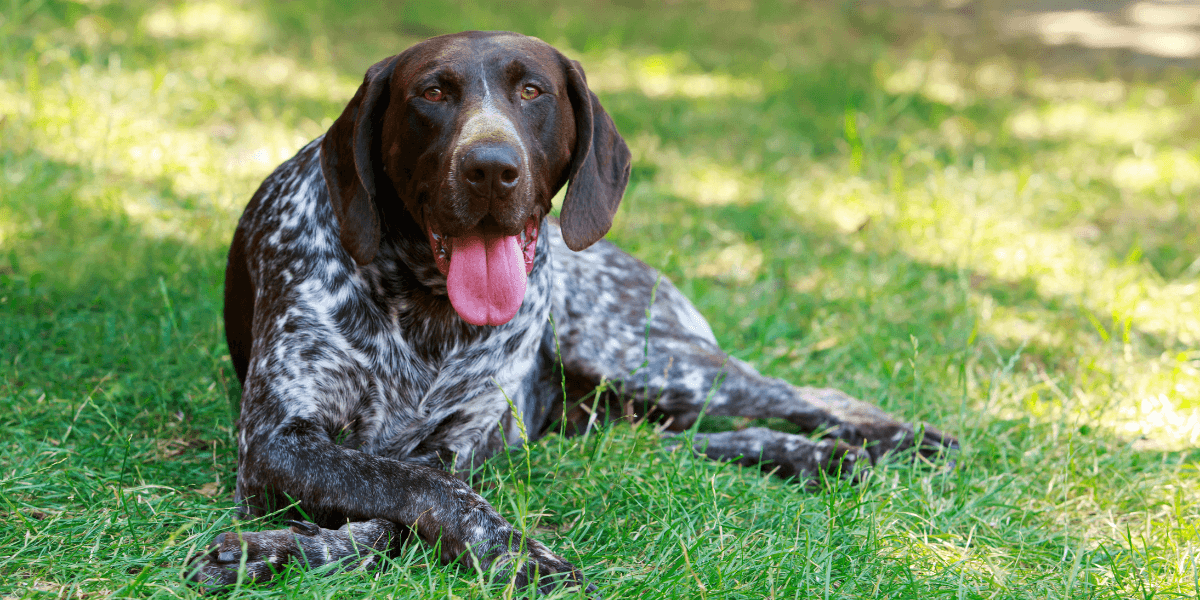
German Shorthaired Pointers are known for their boundless energy and enthusiasm
This breed was originally developed for hunting and requires ample physical exercise
- Daily Exercise: Activities like running, hiking, and playing fetch are ideal
- Mental Stimulation: Engage their minds with interactive toys, obedience training, and agility courses
-
Consistency is Key: Ensure daily exercise routines are regular to maintain energy balance
-
Variety in Activities: Mix up exercises to keep them engaged and prevent boredom
- Signs of Underexercising: If a GSP doesn’t get enough activity, they may exhibit destructive behaviors
2. Intelligence and Trainability
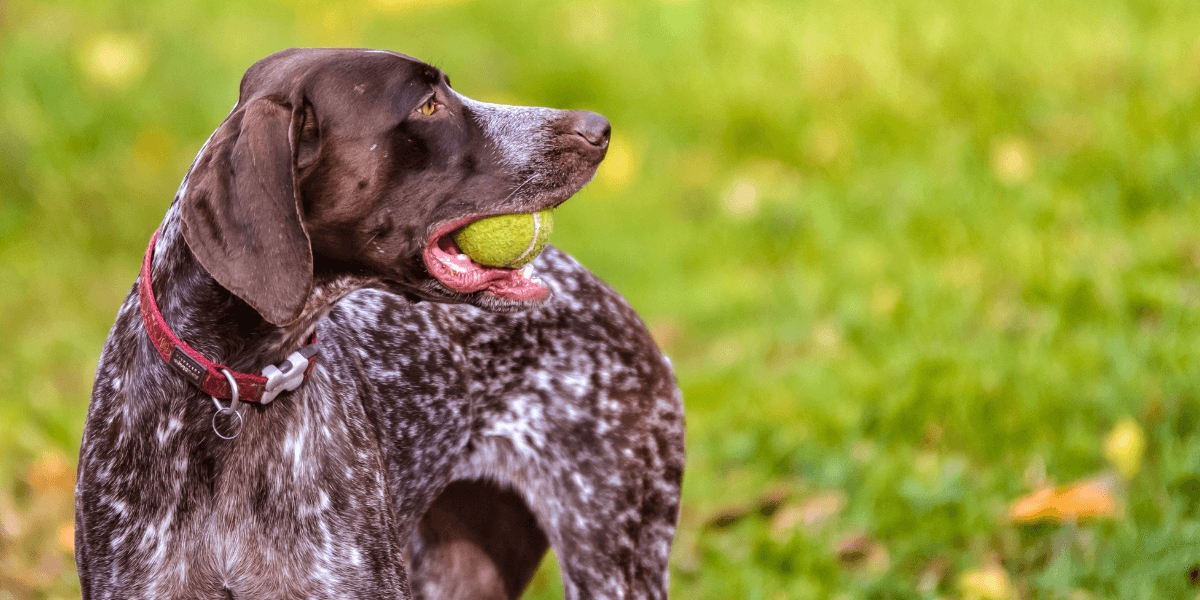
GSPs are highly intelligent and quick learners, making them relatively easy to train
However, their sharp minds require consistent and engaging training methods
- Training Techniques: Use positive reinforcement techniques, such as treats and praise
- Early Socialization: Introduce your GSP to various people, animals, and environments
-
Clear Commands: Use consistent commands to avoid confusion and enhance learning
-
Short Training Sessions: Keep sessions brief and varied to maintain their interest and focus
-
Mental Challenges: Incorporate puzzle toys and problem-solving activities to keep them engaged
- Common Training Issues: Due to their intelligence, GSPs may become bored with repetitive tasks
3. Affectionate Nature
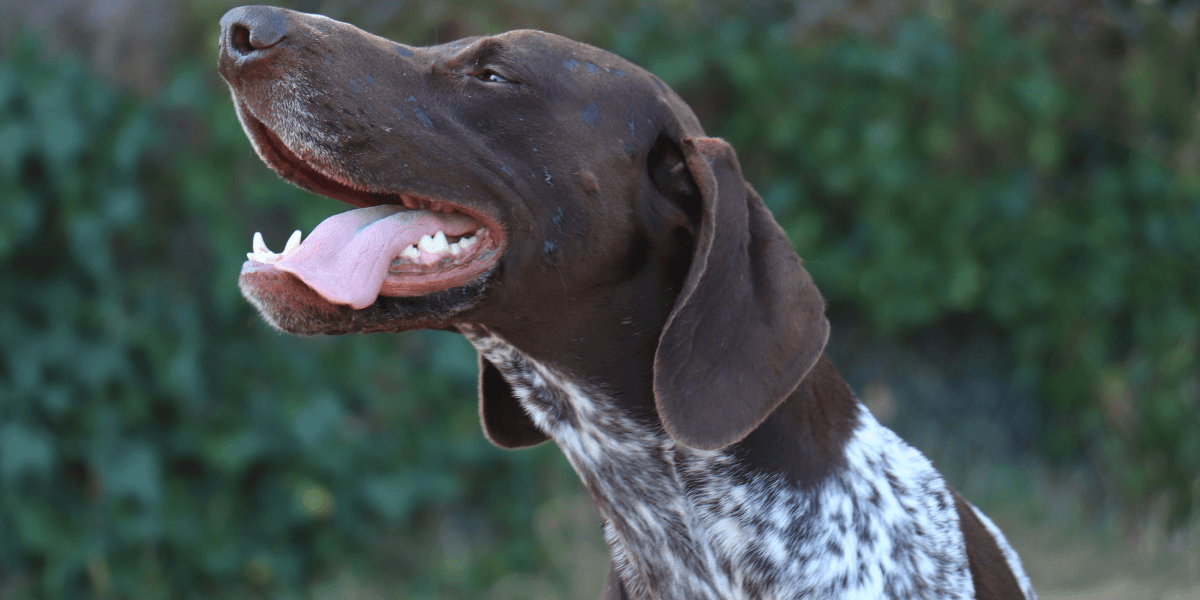
German Shorthaired Pointers are known for their affectionate and loyal nature
They thrive on human interaction and are typically good with families
- Family Dynamics: GSPs generally get along well with children and can be a great addition
- Bonding Time: Spend quality time with your GSP through play and training to strengthen your bond
- Separation Anxiety: This breed can be prone to separation anxiety if left alone for long periods
-
Social Interaction: Regularly involve your GSP in family activities to keep them emotionally fulfilled
-
Comfort and Security: Provide a cozy space for your GSP to retreat to when feeling anxious or stressed
4. Socialization Needs

Socialization is crucial for German Shorthaired Pointers to ensure they are well-adjusted.
- Early Socialization: Introduce your GSP to new experiences and environments from a young age
- Social Skills: Regularly expose your dog to other pets and people to build positive social behaviors
-
Expose to New Situations: Introduce varied environments to build adaptability and confidence
-
Reward Good Behavior: Use treats and praise to reinforce positive social interactions
- Avoiding Aggression: Proper socialization helps prevent fear-based aggression and anxiety
Explore how socialization needs of German Shorthaired Pointers compare in German Shepherd dogs.
5. Grooming and Care
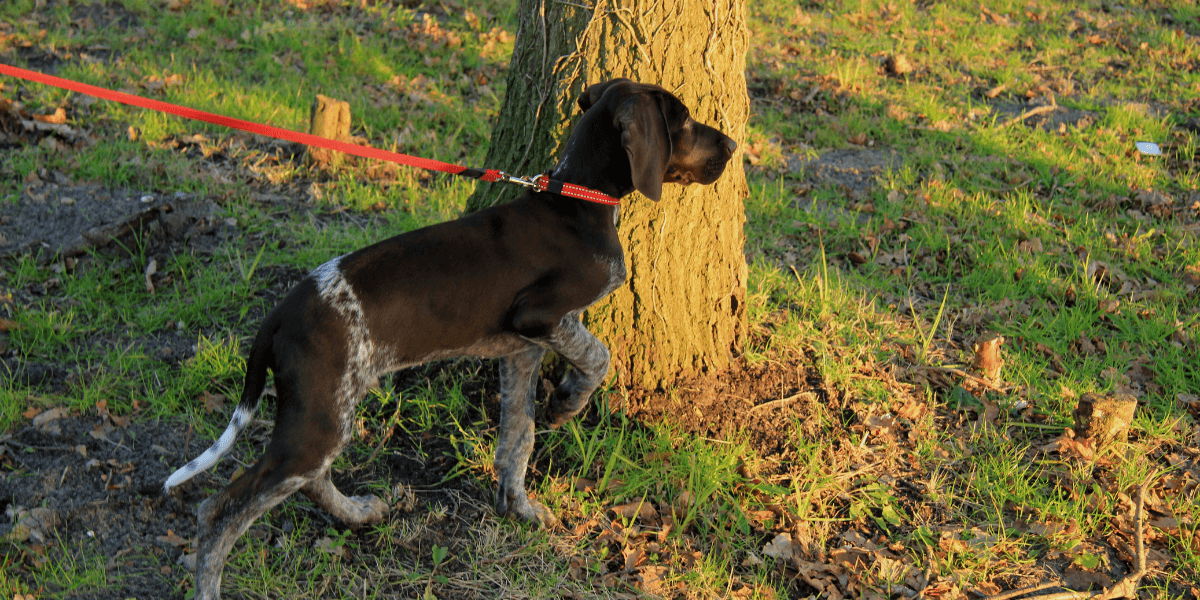
While German Shorthaired Pointers have relatively low grooming needs.
Their short coat requires regular care to keep them healthy
- Brushing: Brush your GSP’s coat once a week to remove loose hair and dirt
- Bathing: Bathe them as needed, usually every few months or if they get particularly dirty
-
Ear Cleaning: Gently clean their ears weekly to prevent infections and wax buildup
-
Nail Trimming: Trim nails regularly to avoid discomfort and potential health issues
- Health Checks: Regularly check their ears, nails, and teeth for signs of issues
6. Behavioral Traits
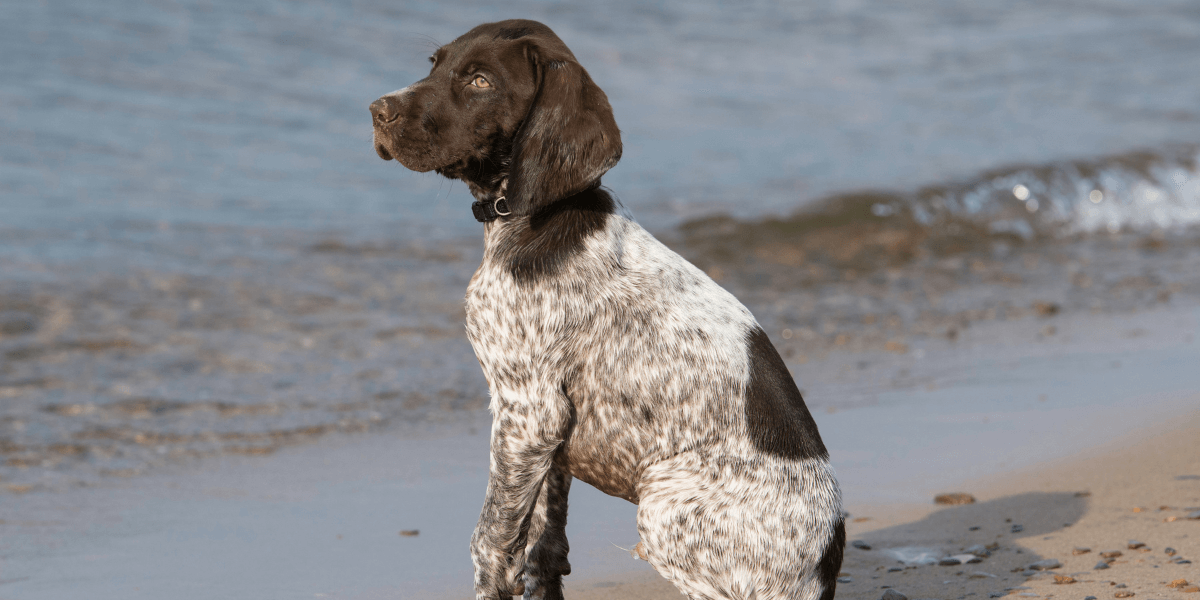
Understanding common behavioral traits of GSPs can help you manage their needs
- Playfulness: GSPs are playful and enjoy activities that challenge them physically and mentally
- Loyalty: They are known for their loyalty to their families and can be protective if needed
-
Energetic Temperament: They thrive in active households and need ample playtime to stay happy
-
Alertness: GSPs are naturally alert and may bark or be cautious of strangers
- Independence: GSPs also have an independent streak and may enjoy some solo time
- Adaptability: They adjust well to different living environments but need consistent routines
Discover behavioral tips for German Shorthaired Pointers in Great Dane Training.
7. Health Considerations
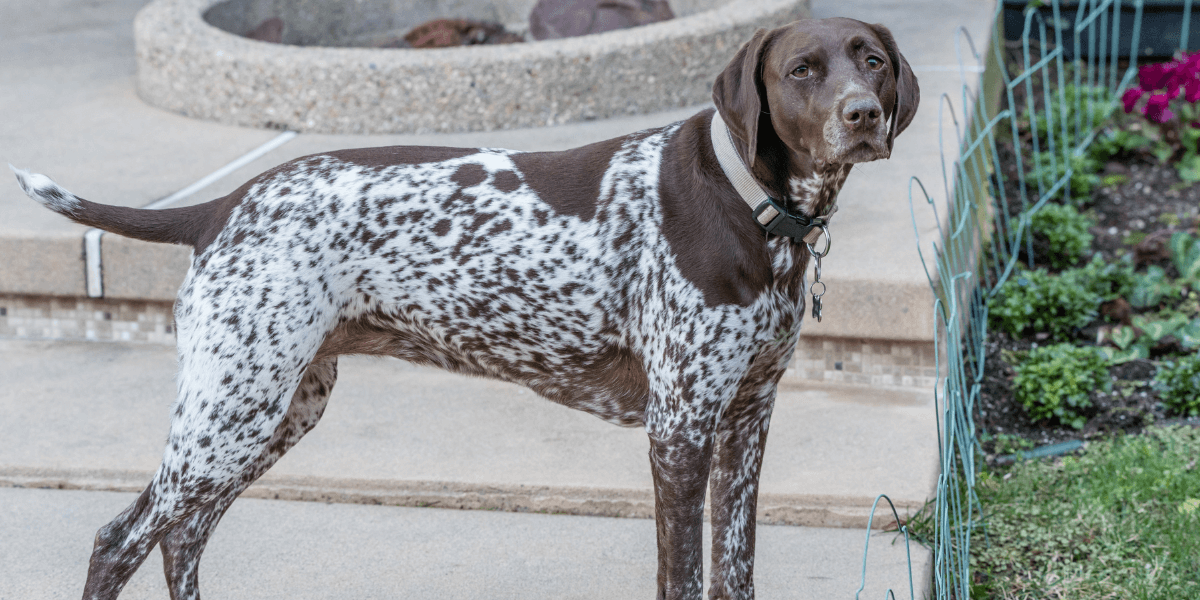
Like all breeds, German Shorthaired Pointers have some health issues to be aware of.
- Common Health Problems: Be aware of conditions such as hip dysplasia, bloat, and certain skin conditions
- Regular Vet Visits: Schedule regular check-ups with your vet to monitor their health
-
Vaccinations: Keep up with vaccinations to protect against preventable diseases and infections
-
Dental Care: Regularly brush their teeth and provide dental chews to prevent dental issues
- Preventive Care: Maintain a healthy diet and exercise routine to prevent obesity and other health issues
- Parasite Prevention: Use flea, tick, and worm preventatives to protect your GSP from infestations
Learn health considerations for German Shorthaired Pointers in Great Danes Health Issues.
FAQs
1. What is the German Shorthaired Pointer temperament?
- The German Shorthaired Pointer is energetic, friendly, and intelligent
2. Are German Shorthaired Pointers good with children?
- Yes, they are typically good with kids and are known for their playful nature
3. Do German Shorthaired Pointers get along with other pets?
- They usually get along well with other dogs but may have a high prey drive
4. How much exercise do German Shorthaired Pointers need?
- They need plenty of exercise, including daily runs and playtime
5. Are German Shorthaired Pointers easy to train?
- Yes, they are intelligent and eager to please, making training relatively easy
6. How do German Shorthaired Pointers handle being alone?
- They may get bored and anxious if left alone for long periods
7. What are common behavioral traits of the German Shorthaired Pointer?
- They are active, affectionate, and have a strong hunting instinct
Conclusion
- Embracing the German Shorthaired Pointer temperament leads to a fulfilling bond
- Consistent training helps manage their high energy and enthusiasm effectively
- Their friendly and loyal nature makes them excellent family pets
- Regular exercise is key to maintaining their mental and physical health
- Socialization from a young age ensures a well-adjusted and happy dog
- Understanding their needs will enhance your relationship with your dog
Your feedback helps others in their journey with this wonderful breed!
References
For more information:
- Common Causes of Hip and Joint Pain in Dogs?
- German Shorthaired Pointer Temperament
- German Shorthaired Pointer Temperament & Personality
- Dog's Hip Pain: Signs, Causes, Relief Tips
- German Shorthaired Pointer Temperament: What's Good About 'Em, What's Bad About 'Em
Thank you!



